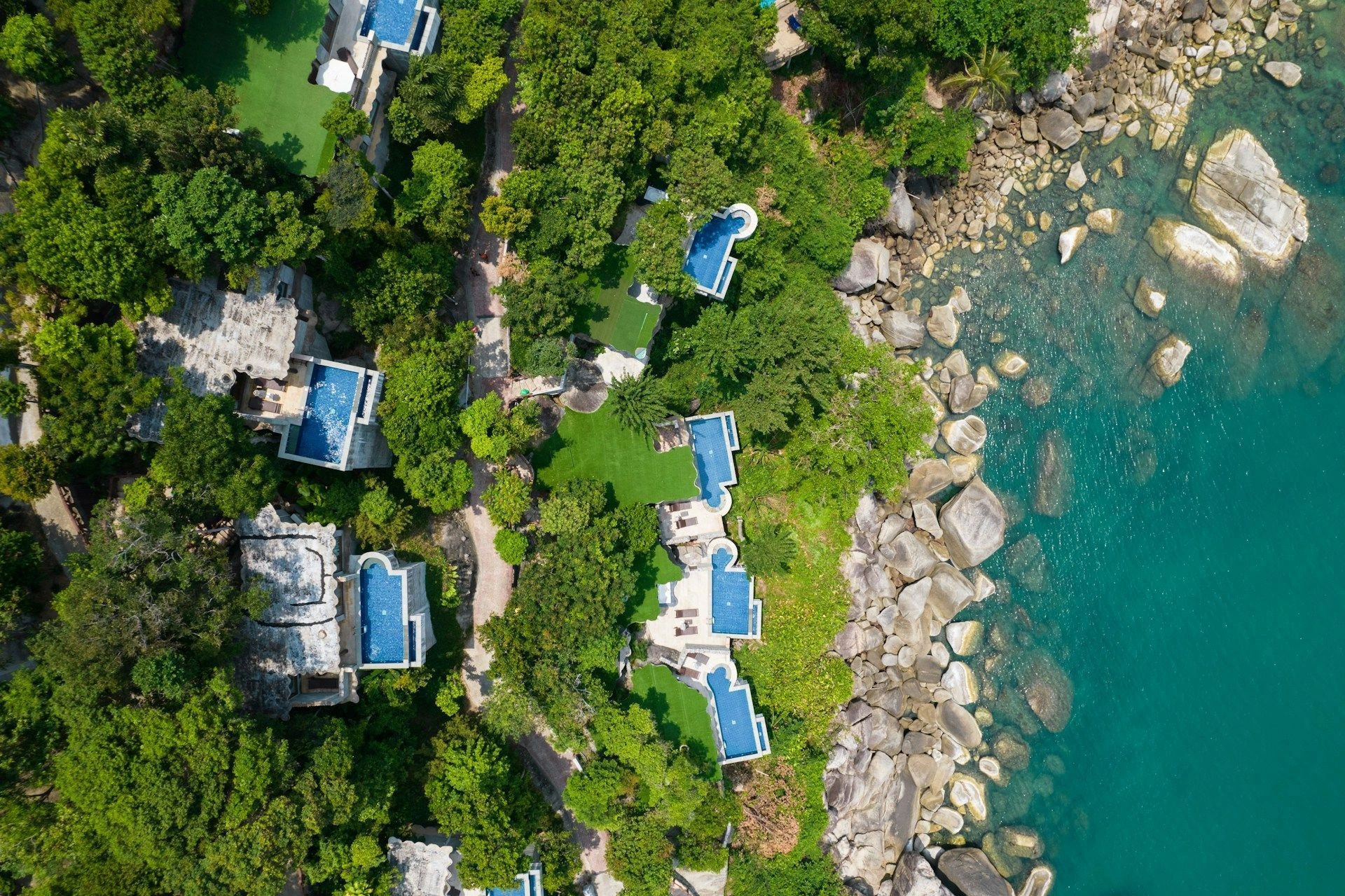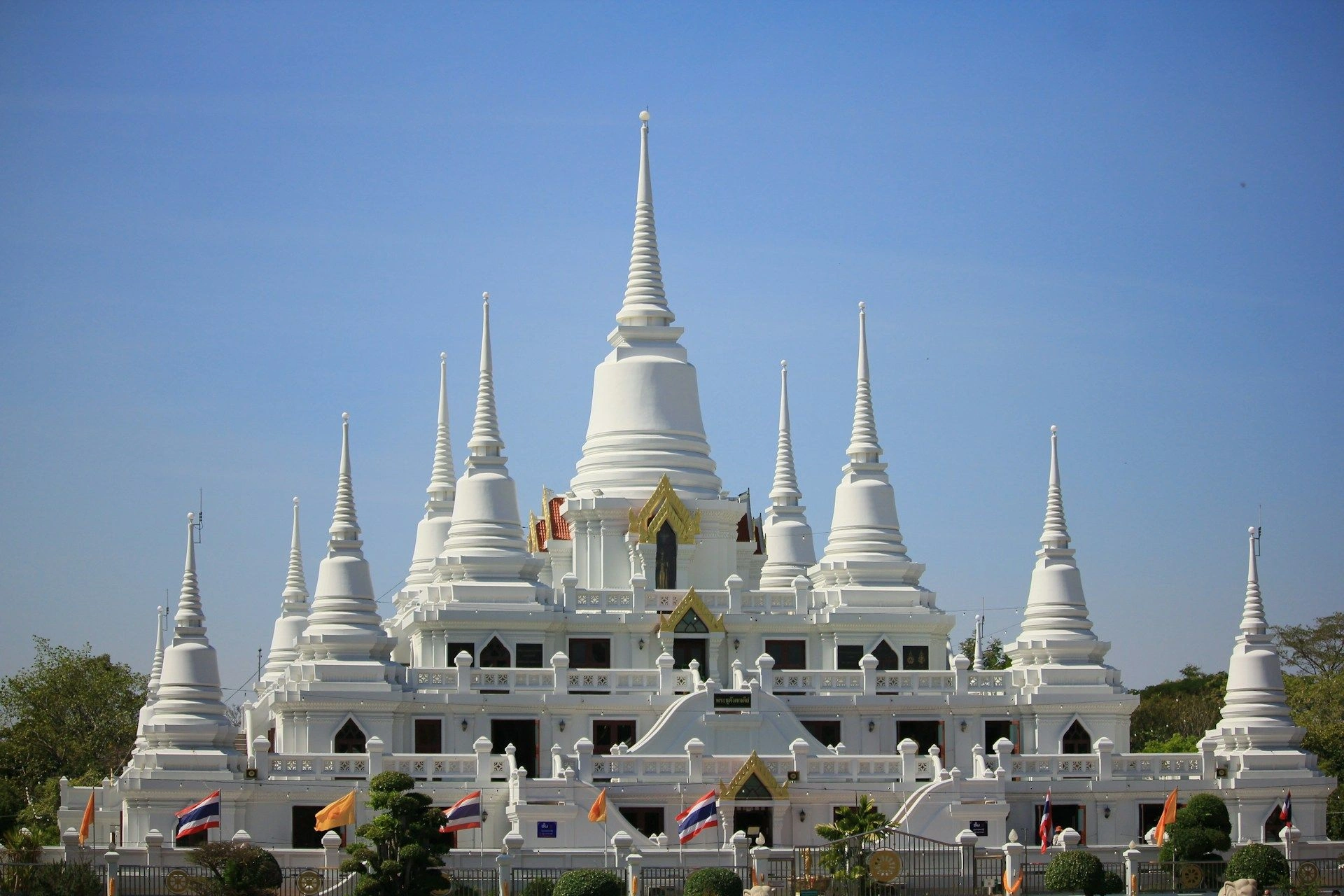How Fractional Property Investments Work in ThailandEEC growth powered by tourism-drivenpassive income returns

Advantages of Fractional
Investments in Thailand
Eastern Economic Corridor
The EEC connects Chonburi, Rayong, and Chachoengsao provinces with high-speed rail, new highways, and industrial hubs. This government-backed development drives strong demand for real estate across Thailand, boosting investor returns on fractional property in Thailand.
World-Class Tourism
Thailand welcomes over 40 million tourists annually, drawn by beaches, culture, and wellness retreats. High and off-peak visitation ensures consistent rental income in Thailand, making investment property in Thailand a reliable source of passive revenue.
Retirement Visa Appeal
Long-term retirement visas and affordable healthcare attract expatriates to cities like Chiang Mai, Hua Hin, and Pattaya. A steady influx of retirees and digital nomads drives continuous demand for co-ownership real estate in Thailand, supporting stable occupancy rates.
Eastern Economic Corridor
The EEC connects Chonburi, Rayong, and Chachoengsao provinces with high-speed rail, new highways, and industrial hubs. This government-backed development drives strong demand for real estate across Thailand, boosting investor returns on fractional property in Thailand.
World-Class Tourism
Thailand welcomes over 40 million tourists annually, drawn by beaches, culture, and wellness retreats. High and off-peak visitation ensures consistent rental income in Thailand, making investment property in Thailand a reliable source of passive revenue.
Retirement Visa Appeal
Long-term retirement visas and affordable healthcare attract expatriates to cities like Chiang Mai, Hua Hin, and Pattaya. A steady influx of retirees and digital nomads drives continuous demand for co-ownership real estate in Thailand, supporting stable occupancy rates.

Useful articles
and recommendations from experts
All
Global Transactions
Popular
Thailand
How to Make Secure International Payments to Thailand in 2025 — Complete Compliance Guide
How to send and receive payments to Thailand without risks
14.08.2025

All
Global Transactions
Popular
Thailand
International Property Payments to Thailand — Secure Real Estate Deals for Global Buyers
How to send secure property payments to Thailand as a foreign buyer
14.08.2025

Global Market Guides
Real Estate News & Trends
Investment
Thailand
China, Russia and the USA made up the top three for purchasing apartments in Thailand
China, Russia and the USA made up the top three for purchasing apartments in Thailand
29.12.2023

All
Popular
Thailand
Affordable Domestic Flights in Popular Tourist Countries
Affordable Domestic Flights in Popular Tourist Countries
22.10.2023

Fractional Real Estate Investments in Thailand
Why Thailand is attractive for investors
Thailand’s real estate market continues to draw global attention thanks to its robust tourism industry, stable economic policies, and strategic geographic location at the heart of Southeast Asia. With over 40 million international arrivals each year, diverse cultural attractions, and world-class infrastructure projects under the Eastern Economic Corridor (EEC), investors seeking investment property in Thailand can capitalize on consistent demand across coastal and urban markets. GDP growth rates have averaged 3–4% annually in recent years, underpinned by government incentives for infrastructure, digital innovation, and renewable energy development.
Beyond tourism, Thailand has become a regional business hub. Bangkok and Chiang Mai host major corporate offices, financial institutions, and tech startups, while emerging secondary markets such as Pattaya, Phuket, and Koh Samui cater to both leisure and business travelers. This blend of corporate expansion and holiday-driven rental demand creates multiple income streams. For those exploring how to invest in Thailand, the combination of high occupancy rates, rising property values, and favorable regulatory frameworks makes fractional property in Thailand a compelling avenue for both passive income and capital appreciation.
Moreover, Thailand’s cost of living remains lower than many neighboring countries, while healthcare and education standards have risen to international levels. The growing expatriate population—estimated at over 1 million residents—seeks long-term housing solutions, driving demand in suburban developments and premium condo towers. These demographic trends bolster rental income in Thailand and ensure that fractional investors benefit from both short-term vacationers and long-haul tenants.
Property types and ownership models
Thailand’s real estate landscape offers a wide array of asset classes: beachfront villas, high-rise condominiums, serviced apartments, mixed-use developments, and eco-lodges. In coastal markets like Phuket and Pattaya, luxury resort apartments and pool villas command premium rental rates, while in Bangkok, central business districts deliver steady returns from city-center condo units. Chiang Mai’s historic charm and favorable climate have fueled growth in townhouses and gated communities.
Foreigners may directly own up to 49% of condominium floor space under the Condominium Act. For landed properties—such as detached homes, townhouses, or villas—leasehold titles (typically 30 years, renewable) or majority-Thai–owned corporate structures are required. Fractional investment models simplify this process by establishing Special Purpose Vehicles (SPVs) or trust agreements that hold the land titles and units. Investors purchase shares in these entities, granting them proportional rental income, capital appreciation rights, and defined exit mechanisms.
Co-ownership real estate in Thailand enables participants to diversify their portfolios across multiple properties and locations, reducing single-asset risk. Entry thresholds start as low as USD 10,000, democratizing access to high-end developments. Structured contracts detail revenue distribution, management fees, ownership usage schedules, and dispute resolution processes. These frameworks make fractional property in Thailand accessible, legally compliant, and professionally managed for international buyers.
Legal rules for fractional investments in Thailand
Thailand’s legal environment for real estate investment is transparent and well-defined. The Condominium Act allows non-residents to purchase condominium units up to the 49% foreign quota. Leasehold structures, commonly set for 30 years with renewal options, are the primary route for foreigners acquiring landed properties. Fractional investments rely on SPV shareholding or trustee models, ensuring full compliance with Thailand’s Land Code and Foreign Business Act.
Before closing a fractional property in Thailand transaction, investors should confirm that the managing SPV has clear title deeds, environmental and zoning approvals, and all building permits. Legal documentation—drafted in English and Thai—is registered with the Department of Business Development and local Land Offices. Key contract clauses cover share allocation, profit distribution, maintenance obligations, governance rules, exit rights, and arbitration under the Thai Arbitration Act.
Platforms offering fractional co-ownership real estate in Thailand typically engage licensed Thai law firms for due diligence, ensuring that investors can navigate regulations without establishing local entities or applying for special approvals. This streamlined legal approach reduces complexity and increases confidence in cross-border property investments.
Rental income and demand trends in Thailand
Thailand’s rental market offers robust yields, driven by diverse segments: leisure tourists, medical travelers, expatriates, and digital nomads. In Phuket and Samui, high-end beachfront villas and resort condos yield gross returns of 6–9% annually, with strong seasonal ADRs (Average Daily Rates) ranging from THB 8,000 to 20,000 per night. Pattaya and Hua Hin show similar performance, supported by both domestic and international tourism.
In Bangkok, central condo projects in Sukhumvit, Silom, and Sathorn deliver rental income in Thailand between 5% and 7%, with monthly rents for one-bedroom units ranging from THB 25,000 to 40,000. Suburban nodes served by BTS and MRT lines—such as Bang Na, Paya Thai, and Phaya Thai—offer yields up to 8–10% due to lower acquisition costs and rising transportation connectivity.
Medical tourism, a major growth driver, directs patients and families to hubs like Bangkok, Pattaya, and Chiang Mai. This segment secures long-term rentals averaging 3–6 months, stabilizing occupancy in what are otherwise seasonal markets. The expatriate community—estimated at over one million—seeks residency and long-stay options, further boosting demand for mid- to high-end rental units across Thailand.
Why choose fractional property investment
Fractional property investment in Thailand allows non-resident buyers to access premium real estate with reduced capital commitments. Instead of full-unit acquisition, investors purchase shares in SPVs that hold multiple assets, diversifying exposure and lowering individual risk. This co-ownership real estate in Thailand model integrates professional property management, tenant sourcing, maintenance, and financial reporting into one turnkey solution.
Co-owners receive scheduled income distributions—quarterly or biannual—based on net rental revenue. Online dashboards provide transparency into key metrics: occupancy rates, net operating income (NOI), average daily rate (ADR), and upcoming exit dates. Fractional investors benefit from group-negotiated discounts with developers and property managers, enhancing yield potential compared to standalone purchases.
Additionally, co-ownership provides stipulated usage rights, allowing investors personal stays at a fraction of maintenance costs. This hybrid model blends passive income real estate in Thailand with lifestyle perks, appealing to investors who seek both financial returns and personal utility from their shares.
Flexible exit strategies and tax considerations
Fractional investments typically include predefined exit mechanisms: SPV-managed buyback programs at maturity (often 3–5 years), secondary share sale platforms, or open-market transfers facilitated by the SPV manager. Valuation formulas—anchored to independent appraisals or regional price indices—are outlined in the shareholder agreement, ensuring fair and transparent exits.
Rental income in Thailand is subject to a 15% withholding tax at source, which the SPV deducts and remits. Capital gains from SPV share transfers are classified as corporate share sales, often resulting in lower effective taxation than direct property sales. Stamp duties, transfer fees, and land taxes are handled within SPV operations and reflected in net distributions, simplifying investor cash flows.
Investors receive annual financial statements and withholding tax certificates, facilitating cross-border tax compliance. Many platforms offer liaison services with international tax advisors to optimize treaty benefits and minimize personal tax liabilities, streamlining the creation of passive income real estate in Thailand portfolios.
How VelesClub Int. supports your investment
VelesClub Int. curates handpicked fractional real estate deals in Thailand—spanning Bangkok condominiums, Phuket beachfront resorts, Pattaya high-rises, and Chiang Mai heritage flats—in collaboration with top developers, legal experts, and property managers. Each SPV-based offering undergoes rigorous due diligence: title verification, zoning compliance, environmental assessments, and financial modeling.
Investors gain entry starting at USD 10,000, with professional asset management covering legal documentation, SPV formation, tenant acquisition, revenue collection, and transparent distribution via a secure online portal. Real-time dashboards display critical metrics: rental income in Thailand, net operating income (NOI), occupancy rates, and upcoming exit options.
Secondary share purchase and resale solutions provide liquidity beyond fixed terms, while personalized advisory and multilingual support guide investors through each stage. Whether your goal is capital appreciation, passive income, or periodic owner stays, VelesClub Int.’s co-ownership real estate in Thailand contracts deliver regulatory compliance, professional management, and seamless investor experiences across Thailand’s most dynamic markets.







